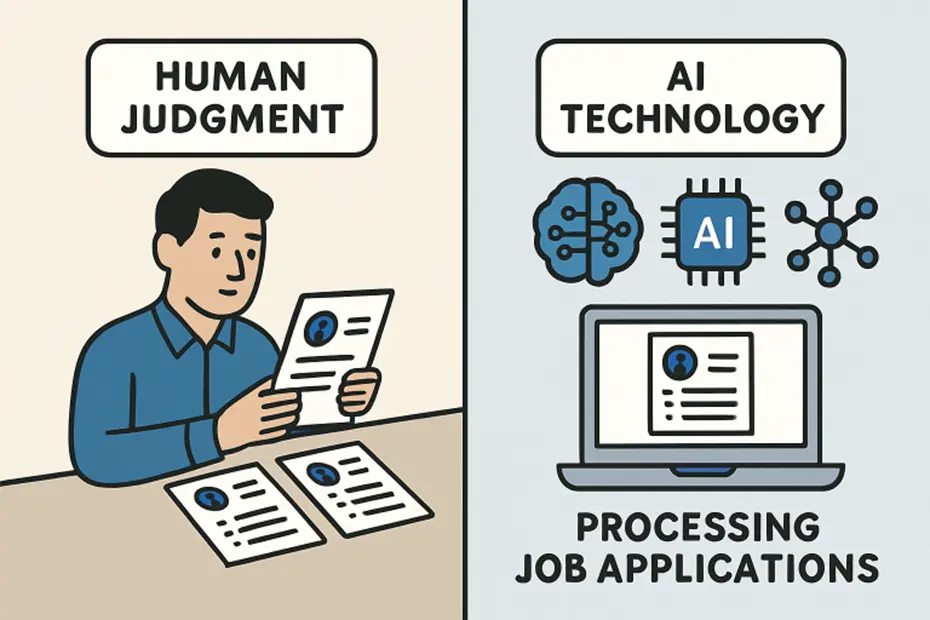The Rise of AI in Recruitment
Artificial Intelligence (AI) rapidly transforms the hiring landscape, offering advanced solutions for employers inundated with resumes and applications. As organizations race to attract top talent, the promise of intelligent automation has never been more appealing. AI-driven systems are helping recruiters screen candidates, identify strong prospects, and match applicants with suitable roles, resulting in a more streamlined and data-driven recruitment process. Yet, this technological evolution brings a new set of considerations, including the battle against fake job applicants that can compromise the integrity of hiring decisions.
Companies are betting on AI to reduce repetitive manual tasks and combat traditional forms of bias that have long plagued human-led recruitment. Enhanced algorithms can evaluate application data based on specific, objective requirements, minimizing the impact of subjective judgment. However, the influx of AI tools also demands robust data privacy measures, oversight, and a commitment to ethical hiring practices.
Despite these benefits, the recruitment industry must recognize that algorithmic tools are only as good as the data they process. As AI becomes more sophisticated, so do the methods of job seekers attempting to game the system, making it vital for organizations to balance technology with careful human intervention.
Opportunities Presented by AI in Candidate Screening
- Efficiency and Speed: AI can analyze resumes and filter applications at a speed impossible for human recruiters, ensuring that top candidates are highlighted quickly. This rapid processing reduces time-to-hire and allows HR teams to focus on value-added activities.
- Enhanced Candidate Engagement: Automated systems, like AI-powered chatbots, keep lines of communication open throughout the hiring journey, instantly answering questions and providing updates, which leads to higher candidate satisfaction and improved employer branding.
- Bias Mitigation: Carefully designed AI platforms can suppress unconscious biases by disregarding factors like name, gender, or age, helping to foster a workforce that better reflects the diversity of the talent pool.
Risks Associated with AI in Candidate Screening
- Algorithmic Bias: There’s a danger that poorly trained AI systems can replicate or even amplify the biases found in historical data. For example, if previous hiring favored a particular demographic, the AI might continue this pattern, inadvertently leading to discriminatory outcomes.
- Data Privacy Concerns: Firms handling large volumes of applicant data must rigorously protect sensitive information to comply with regulations such as the GDPR. A single breach or data mishandling can erode trust and expose the company to legal sanctions, as discussed in this BBC analysis on AI in hiring.
- Over-Automation: Fully automated hiring processes can strip away the personalized touch that many candidates value, potentially deterring top talent who seek an employer invested in their unique potential rather than one that relies solely on technology.
Balancing AI and Human Oversight
Achieving the right synergy between AI efficiency and human judgment is critical for sustainable recruitment success. Integrating AI-driven tools to handle time-consuming administrative work gives recruiters bandwidth to engage personally with applicants and make more informed, nuanced decisions. This collaborative approach also helps prevent overreliance on automation and keeps the recruitment process dynamic.
Regular Audits and Ethical Practices
Consistent audits of AI systems are essential to identify and correct any emergent biases or errors, ensuring algorithms remain fair, up-to-date, and compliant with changing legal requirements.
Transparency with Candidates
Openly sharing how AI is used in the hiring process cultivates trust and sets accurate expectations. Candidates are more likely to feel respected and valued when they understand which aspects of screening are automated and where human discretion comes into play.
Future Outlook
Over the coming years, AI’s role in candidate screening will likely deepen, potentially offering even more sophisticated predictive analytics and candidate-matching capabilities. However, this expansion will require organizations to remain vigilant regarding ethics, compliance, and candidates’ nuanced needs. Educating recruiters about the nuances of AI and maintaining an adaptable, human-centric approach will be key to resilient hiring frameworks.
Emerging innovations—including explainable AI—promise to clarify how decisions are made further, allowing hiring managers to review and assess the rationale behind every recommendation. As AI grows more embedded in recruitment processes, staying informed and proactive will set organizations apart in the talent competition.
Final Thoughts
AI presents both transformative benefits and significant pitfalls in candidate screening, offering the promise of efficiency, diversity, and improved candidate experiences while raising concerns around bias, privacy, and authenticity. By combining the relentless efficiency of AI with careful human oversight—and by committing to transparency and ethical conduct—organizations can harness AI’s full potential for building fairer, more effective hiring processes.
Also Read–Innovative Test Generation Techniques for Modern Applications
